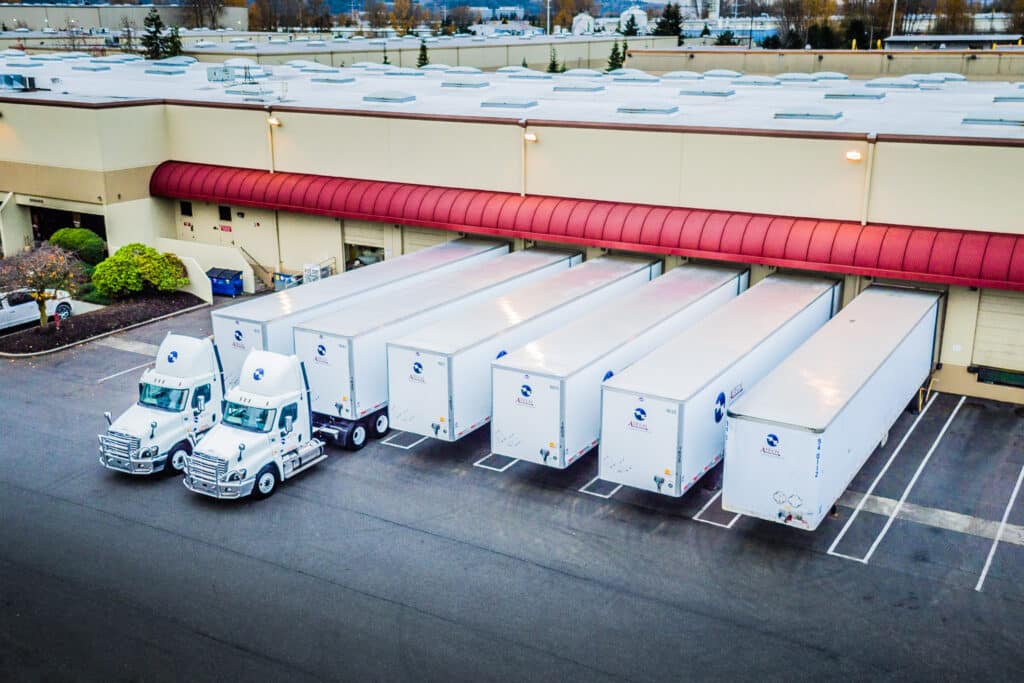
In today’s world, getting involved in your community is very important for bringing people together and making an impact in society. Whether you are in the heart of the city or out in the countryside, teaming up with other organizations and companies to back up local projects doesn’t just make life better for everyone – it also sets the stage for success in the future. The logistics industry is no exception to such initiatives. It is the perfect partner to support organizations making an impact in communities across the globe. It is also the perfect industry to do initiatives of their own. Let’s dive into how community involvement is imperative in the logistics world, shining a light on great partnerships and local initiatives that make a real difference.
Partnerships
The real superpower that helps achieve effective community engagement is partnerships. Logistics companies can score big by teaming up with local organizations, businesses, and community groups. By collaborating with stakeholders at the grassroots level, logistics firms can gain valuable insights into community needs, enhance service delivery, and build trust and goodwill.
Backing Disaster Relief Efforts
The logistics industry can play a very critical role in times of crisis to support disaster response and recovery efforts. Due to the nature of the industry, their expertise, and resources, logistics companies can help deliver essential supplies and humanitarian aid to affected communities by partnering with disaster relief organizations, government agencies, and NGOs. Whether airlifting emergency supplies to disaster zones or providing logistics support for vaccination campaigns, collaboration between the private sector and humanitarian organizations can save lives and mitigate the impact of natural disasters and humanitarian crises.
Fortifying Supply Chains
Supply chains serve as the lifelines of economies across the world. By partnering with local suppliers, manufacturers, and distributors, logistics companies can strengthen their supply chains while simultaneously supporting local businesses. This kind of teamwork helps keep the economy strong, lessens the need for faraway suppliers, and boosts growth in the area.
Supporting Sustainability
The concern for climate change is on the rise and sustainability is a central focus for businesses across industries. One way that logistics companies can support the community is by adapting green logistics solutions to reduce their carbon footprint and contribute to environmental sustainability. Also, supporting local initiatives can help logistics companies make a positive impact. From tree-planting campaigns to community clean-up efforts, a partnership with local organizations working to create a more sustainable community can demonstrate their commitment to corporate social responsibility and earn the trust and loyalty of environmentally conscious consumers.
Improving Final-Mile Delivery
The final mile delivery—the final leg of the journey from distribution center to doorstep—presents unique challenges, particularly in densely populated urban areas. By collaborating with local authorities, community organizations, and innovative startups, logistics companies can optimize last-mile delivery operations, reduce congestion and emissions, and improve the overall customer experience. Initiatives such as crowd-shipping, micro-fulfillment centers, and shared urban warehouses offer promising solutions to urban logistics challenges.
Local Initiatives
Besides teaming up with organizations and companies outside their circle, logistics companies can get hands-on in supporting local projects that tackle important social and environmental issues. Using their expertise, resources, and connections, logistics companies can kickstart some positive changes at the grassroots level, making a difference in their own backyard.
Supporting Development for the Future
Knowledge is power, and logistics companies can share it with the community to empower it and prepare them for a potential future in the industry. Logistics companies can invest in training programs, apprenticeships, and vocational education initiatives, to equip residents with the skills and knowledge needed to thrive in the industry. Providing job opportunities and career pathways for underserved populations promotes economic inclusion and social mobility. Such initiatives contribute to poverty alleviation and community development.
Efforts Towards Education and Youth Empowerment
By supporting educational initiatives, scholarships, and mentorship programs, logistics companies can empower young people to pursue their dreams and aspirations. Whether through STEM education initiatives, coding boot camps, or entrepreneurship incubators, logistics firms can inspire the next generation of innovators, problem-solvers, and leaders, thereby nurturing a culture of creativity, resilience, and lifelong learning within local communities.
Advocating for Health and Wellbeing
Access to healthcare services is a fundamental human right, yet millions of people around the world lack access to essential healthcare services due to various social, economic, and geographic barriers. By partnering with healthcare providers, community clinics, and public health agencies, logistics companies can facilitate the delivery of medical supplies, equipment, and pharmaceuticals to underserved communities, thereby improving health outcomes and promoting well-being. Whether through medical supply chain optimization, telemedicine initiatives, or health awareness campaigns, logistics firms can make a meaningful difference in the lives of individuals and families facing health disparities and challenges.
Encouraging Cultural Diversity
Logistics companies can promote social cohesion, celebrate diversity, and build bridges across communities by supporting cultural exchange programs, arts festivals, and community events. There are many ways for a logistics company to get involved with a community celebration. Whether it is through sponsorships or providing logistical support, logistics companies can help put together vibrant, inclusive, and resilient communities where individuals of all backgrounds feel included, respected, valued, and empowered.
Conclusion
Community engagement is vital to the logistics industry. By forging partnerships, supporting local initiatives, and empowering communities, logistics companies can make a positive impact on society while simultaneously enhancing their own business operations and reputation. Whether through supply chain optimization, disaster relief efforts, sustainability initiatives, or community empowerment programs, logistics firms have the power to create positive change and build a better world for future generations.

